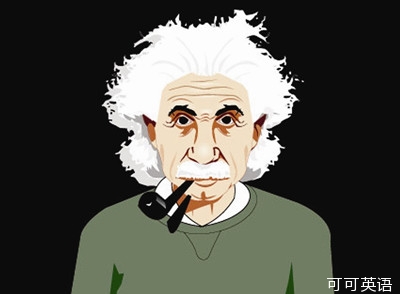Maybe Geniuses Just Got Lucky
也許是運氣造就了天才
Life is unfair, as even the Bible acknowledges.
生活是不公平的,這一點甚至連《圣經》也不加否認。
We can't all hit a baseball like DiMaggio or sing like the Beatles.
不是每個人都能把棒球打的像迪馬喬那樣出神入化或把歌唱得像甲殼蟲樂隊那樣震撼人心。
But how much do we understand about those who can·
但是我們對那些能做得如此完美的人究竟了解多少?
Not enough, says Malcolm Gladwell,in his new book, Outliers: The Story of Success.
馬爾科姆·格拉德威爾在他的新書《異類:不一樣的成功啟示錄》中指出我們對這方面的了解還只是皮毛而已。
We attribute the Beatles' fabulous success to their amazing musical talents,whereas Gladwell has a different explanation-as a determinant of success, talent is overrated,compared with, among other things, luck.
我們常把甲殼蟲樂隊的驕人成就歸因于他們驚人的音樂天賦,然而格拉德威爾卻有著獨特的見解—天賦確實是取得成功的一個決定性因素,但是跟其他因素如運氣相比,天賦的作用被過分夸大了。
Outliers opens with a typically Gladwellian puzzle:
《異類》一開始就提出了一個典型的格拉德威爾之謎:
why are so many professional hockey players born early in the year?
為什么會有如此多的職業曲棍球運動員出生在一年中的前幾個月份?
 It turns out that Canadian youth leagues group players by age,based on a calendar year,
It turns out that Canadian youth leagues group players by age,based on a calendar year,
原來,在加拿大青少年曲棍球聯隊,球員的年齡以日歷來算,球員根據他們的年齡進行分組。
so a player born in January will be the oldest on his team,enjoying a big difference in size and maturity.
因此1月份出生的球員在球隊中年齡是最大的,他們在體格和成熟度方面有很大的優勢。
The early birds get more playing time and coaching,advantages that become self-reinforcing,spelling the difference between a National Hockey League career and a job as a high-school coach.
這些早出生的鳥兒有更多的比賽時間和訓練活動,并且這種優勢不斷得到強化,這意味著他們很可能成為全國曲棍球聯盟的一名職業選手而不是一名高中教練。
Life is unfair.
生活確實不公平。
Similarly, Gladwell calculates that the best year for a software genius to be born was 1955-just old enough for the start of the personal-computer revolution in the mid-1970s.
同樣,格拉德威爾推測軟件才子出生的最佳年份是1955年-因為20世紀70年代中期,個人計算機革命才剛剛起步,而這些1955年出生的人此時正是風華正茂,
That is the year when Bill Gates and Steve Jobs were born.
比爾·蓋茨和史蒂夫·喬布斯就是在那一年出生的,
Obviously, not everyone born that year became a billionaire;Gates and Jobs had distinctive talents,but they also had unique opportunities growing up.
不過顯然也不是每個在1955年出生的人都可以成為億萬富翁;蓋茨和喬布斯有卓爾不群的才能,除此之外,他們的成長過程還充滿了罕見的機遇。
Almost invariably, Gladwell says,geniuses are made, not born,and it was their families, schools and societies that made them.
格拉德威爾說,幾乎可以肯定,天才并非是天生的,而是培養出來的,是他們的家庭環境,學校教育以及社會生活造就了他們。
As evidence Gladwell brings to bear his own history,as the son of a Jamaican woman of limited means who won a scholarship to study at the University of London.
為了更好地證明上述觀點,格拉德威爾還擺出了自己的家史,他的母親出生在一個財力有限的牙買加人家,她獲取了獎學金,從而有了到倫敦大學學習的機會。
Her marriage to an Englishman there began the family's ascent into the educated elite.
她和當地一個英國人結婚,這使得他們一家躋身于知識精英行列。
He maintains that his mother was the beneficiary of her own mother's initiative and a favorable environment.
他一直認為他的母親能有現在這般成就完全得益于他外祖母的努力進取以及那時良好的外部環境。
And so are we all.
而我們同樣也是如此。
The reader should feel free to cite counterexamples-Shakespeare, the son of a provincial trader in hides and grain·
讀者可以信手拈來,隨意舉出一些反例-比如,莎士比亞的父親不過是個鄉下交易獸皮和谷物的小商販;
Einstein, dreaming away in an obscure patent office·
而愛因斯坦不過成天在一個無名的專利辦公室虛度時光罷了?
you won't faze Gladwell.
但是這些都難不倒格拉德威爾。
He always builds an argument out of riveting anecdotes and eye-opening statistics,then blithely moves on to his next point,leaving the reader with a faint hint of buyer's remorse about the almost too-perfect package of ideas.
他經常利用引人入勝的趣聞以及令人瞠目結舌的數據來論證他的觀點,然后歡快地論述下一個觀點,而讀者就像一下子買了東西的人那樣,在讀完他那套幾近完美的理論之后不免產生一絲懊悔。
No other writer today can pull this sort of thing off so well.
如今,沒有哪一個作家可以做到格拉德威爾這樣,
If I hadn't just read Gladwell's book,I'd be jealous of his talent, instead of his luck.
要不是我剛剛度了格拉德威爾的這本書,我羨慕的肯定是他的天賦而不是運氣。











